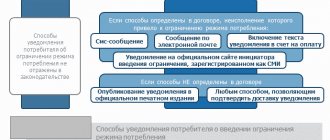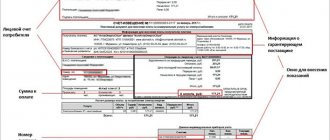Moscow, 10.10.2020, 09:46:37, editorial office of FTimes.ru, author Zoya Zharkova.
The difficult situation due to the coronavirus has led to thousands of Russians being unemployed, so the main issue on the agenda is how to pay utility bills.
According to the law, a citizen is charged a penalty for non-payment or late payment of housing and communal services; they are imposed for each day of delay, starting from the 31st day following the day of the due date for payment until the day of actual payment.
What is the obligation to pay bills?
The main regulatory legal act regulating the issue of payment of receipts for utility services and their maintenance is the Housing Code of the Russian Federation. The obligation of owners of square meters is established by Art. 153. Non-payment of bills entails a number of negative consequences, including legal proceedings. In some cases, the person using the apartment may be forcibly evicted. However, the latter actions take place when concluding a social tenancy agreement for municipal housing. A citizen who owns an object by right of ownership in the absence of other residential areas is not subject to such measures of influence.
Important! The debtor can be notified directly by the management company. This action is carried out if there are no transfers for three months. The court, as a rule, considers the application in case of non-payment for six months (6 receipts).
At what amount of debt for housing and communal services do they sue?
At what point does debt begin to form? The current debt begins to form in the first half of the next month; this amount is not subject to any fines or penalties. The debt is considered overdue from the second half of the following month, then measures provided for by law may be applied to the debtor:
- Penalties
- Penya
- Trial
Depending on the repayment period, overdue debt is classified:
- Less than three months
- During a year
- From one to three years
In cases where the payment arrears are less than three months, explanatory work is carried out with the debtor.
What are the options?
Before filing an application, the organization managing the apartment building must apply primary sanctions to the negligent home owner. Thus, from the moment the delay occurs, the defaulter is subject to a fine. This event is counted monthly after the 10th. Every day the owner is charged a penalty (Article 155 of the Housing Code). This measure of influence is intended to have a stimulating effect on the person and force him to promptly pay receipts in order to avoid significant overpayment in the future.
When the debt exceeds five months, and at the end of the sixth, payments have not been made, the organization initiates legal proceedings. This procedure is typical for both tenants of apartments owned by the municipality and owners.
Important! The management company should not file a claim immediately after the grounds arise. Before this, the citizen is sent a notification about the accumulated debt and details for its payment. This allows a person to avoid forced collection if he manages to make the payment.
A peaceful solution to the problem involves visiting the structure that accepted the house for service within the framework of a collective agreement. There the person must find out whether the company is ready to restructure the debt and provide installment plans. If a citizen does not respond to the structure’s letters, he will soon receive a summons to court. The case is being considered by the city (district) court. As a rule, the tenant is obliged to pay the accumulated amount.
If the living space belongs to the debtor
Persons living in an apartment building on the right of ownership may face another measure from the management company. An effective method of pressure is to disconnect a citizen from the resources supplied to him (RF PP dated 05/06/11 No. 354). Most often we are talking about electricity. In addition to complete deprivation of electricity, a citizen can be transferred to a limited consumption mode within a schedule of several hours a day. If there is no action on the part of the debtor, the management company turns off the gas supply. This is where the restrictive measures end. There is no right to “cut off” a person from cold water and the home heating system.
According to paragraph 119 of the Rules approved by the RF Government No. 354, the house management organization must follow the procedure for notifying owners about restrictions on the use of supplied resources. The period is counted from the date of delivery of the relevant notice.
If the square meters are municipal
This category of residents is considered by lawyers to be the least protected. If the apartment has not been privatized, and the financial situation of the persons who entered into a social tenancy agreement does not allow them to pay the bills, then the administration has the right to initiate tough measures. Debt for housing and communal services often becomes a valid reason for eviction. This development of events is directly stated in Art. 90 LCD.
Eviction is carried out only by decision of a judicial authority. No other provisions are provided by law. In exchange for the lost square meters, residents receive less comfortable housing, smaller in size. At the same time, the size of the areas should not be less than the social norm calculated for communal apartments. And most importantly, you will still have to pay the previous debt.
Can housing and communal services sue?
Even before the decision is made to collect the debt through the court, adverse consequences already occur for the defaulter.
From the first day of delay on current accounts, the payer is subject to a fine . Traditionally, after the 10th day of each month, the countdown for late payments begins. For each day according to Art. 155 of the Housing Code of the Russian Federation, a penalty is charged on the amount of the debt. The purpose of such punishment is to encourage the defaulter to repay the resulting debts as soon as possible.
Much more stringent enforcement measures will be taken by the housing and communal services when debts accumulate over six months . At the same time, not only homeowners will experience them, but also those who live in municipal apartments under social tenancy agreements and in service apartments. In any case, the debts will be repaid, only the amount will grow with each day of delay.
By the time the debt period begins to approach 6 months, the management company will begin to send appropriate notifications to the debtors. They will indicate the current amount of the debt, including the amount of penalties, and also indicate the actions that will be taken after the expiration of the specified debt repayment period.
At this time, it is still possible to resolve the case peacefully and without going to court. This is beneficial not only for the management company, but also for the debtor. Negotiations should establish whether the company is ready to restructure the existing debt. In this case, the debtor has a chance to pay off the debts in feasible payments, without prosecution.
If the debtor does not respond in any way to the housing and communal services letters, does not pay off debts and penalties, then the result of all this will be a summons to court. After a trial in the district court, residents who have accumulated debts will be required to pay not only the debt itself, but also penalties. In this case, no one will offer installment payments.
If the apartment is owned
In relation to residents of an apartment building who are the owners of their homes, management companies can use, in addition to going to court, another effective method of pressure.
Thus, nothing prevents utility companies from simply blocking debtors’ access to utility services. This opportunity is provided to the Housing and Communal Services by the Rules for the Provision of Public Utilities, approved on May 6, 2011 by Government Resolution No. 354.
The rules state: the debtor can stop supplying utility services until he has fully repaid the currently accrued debt on his bills. Moreover, at first supplies are limited, and then completely stopped.
You cannot turn off the supply of cold water and heating , but nothing prevents utility workers from disconnecting the debtor’s apartment from electricity, as well as turning off the valve on the gas pipe. Of course, all this is done in a certain order.
According to clause 119 of the Rules, the management company is obliged to notify the debtor one month in advance that restrictive measures will be taken against him. The period is counted from the date of delivery of the notice to the debtor by mail or in person. The last warning will be given 3 days before the expected shutdown date. Finally, on the day of the shutdown, a final – third – notice will be given.
If the apartment is municipal
Those who live in apartment buildings under social tenancy agreements are in a much less protected position than those who managed to register ownership of their housing. No one has the right to evict the owner from his apartment, not even the court. Under certain circumstances, an apartment may be forced to be sold in order to pay off debts, but it is impossible to take it away to pay off the debt.
For residents of municipal apartments, housing and communal services debt can become a reason for eviction. In Art. 90 of the Housing Code of the Russian Federation directly states that after six months of rent arrears, debtors may be subject to a penalty in the form of forced eviction.
One way or another, eviction always occurs only in court . In this case, in exchange for the current living space, the debtor, again at the expense of the municipality, must be provided with other housing. Its size must correspond only to the social norm established for a given region for each resident. But (!) the obligation to pay debts does not cancel the eviction; they will still have to be paid.
What events are considered mitigating circumstances?
Sometimes a person cannot pay receipts for reasons beyond his control. Utility workers and the court in such situations meet citizens halfway. The following circumstances must be taken into account:
- The owner has a serious illness that does not allow him to earn a living.
- Retrenchment at the place of employment, liquidation of the employer (its bankruptcy).
- Delay of salary.
- Other valid reasons that directly affect the financial situation of the family (single citizen).
Important! The court, when considering such cases, is guided by the amount of income of the owners (tenants). If the rent is more than 22% of the total earnings of the debtors, then the persons acting as defendants are asked to apply for an annual subsidy. This subsidy allows you to reduce the amount of the burden.
Procedure upon receipt of notice of filing a claim
If the worst case scenario does happen, then there is no need to panic. A trial is a legal procedure conducted in strict accordance with the law. Therefore, the fact that the case is being considered does not mean that the citizen has no chance. He, like the Criminal Code, can present evidence in his favor and defend himself. If there are violations on the part of the authorized organization, it is worth filing a counterclaim and focusing on the following facts:
- The management company declares that funds have not been received, but the debt has been paid;
- there are violations of Art. 779 of the Civil Code of the Russian Federation, according to which a claim against a person is recognized as unsubstantiated;
- the debt accumulated on the sold apartment, and the defendant fulfilled all obligations before the transaction was completed;
- The management company did not fulfill its obligations and provided services of a quality that did not correspond to what was declared;
- there is evidence of illegal enrichment of the structure at the expense of residents, etc.
If there are no arguments in their favor, the owner is recommended to pay the required amount. If you have payment documents in hand, the court will soften the sanctions, and the case will be considered in a simplified manner. If you are unable to pay the fee, you will need to collect documentation confirming that there are good reasons for the debt. Next, the person needs to apply for an installment plan. The amount will have to be transferred monthly with current accruals until the debt is fully covered.
Important! The worst thing will happen when a person living in an apartment building refuses to respond to notifications and does not go to the court hearing. Then the decision on the forced recovery of the entire amount will become valid and will be transferred to the SSP of the Russian Federation in the form of a writ of execution. Bailiffs will freeze accounts or seize property for sale at auction.
Question:
How to file a counterclaim against a building management structure?
Answer:
The defendant may exercise the right to counterclaim. The conditions for accepting the application are indicated in Art. 138 Code of Civil Procedure of the Russian Federation. After submitting documents and an application, the authority must consider the case from the beginning. The counterclaim is drawn up taking into account the requirements of Art. 131, 132 Code of Civil Procedure.








